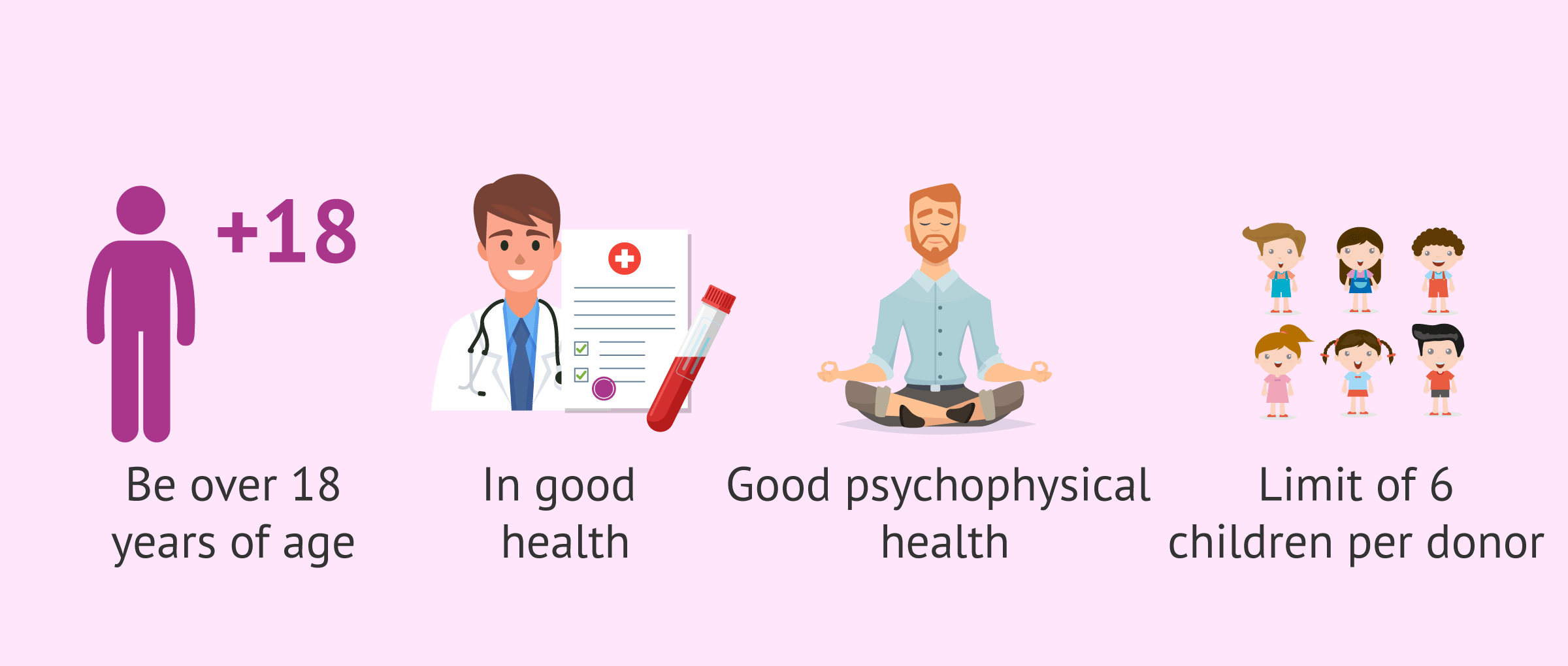Before the donation takes place, various studies are carried out on the donor to verify that he meets the health conditions required for sperm donation. Sperm donors must:
- Be over 18 years of age at the time of making the donation. In addition, the law also stipulates that the maximum age allowed to make a donation is 55 years, but the vast majority of sperm banks only accept donors up to 35 years.
- Enjoy good physical health and not present any type of pathology or disease that could be transmitted to offspring.
- Present a good state of psychophysical health and be in full mental faculties. This is because the donor must be aware of the repercussions that the act of sperm donation entails.
- Have less than 6 children born as a result of your donor activity. This is a way to control and reduce the risk that 2 children born from the same donor meet and have offspring, thus reducing the chances of consanguinity in the population.
Read the full article on: What’s Being a Sperm Donor Like? – Things to Consider ( 38).
By Laura Parra Villar B.Sc., M.Sc. (embryologin), Rut Gómez de Segura M.D. (gynecologist), Zaira Salvador B.Sc., M.Sc. (embryologist) and Cristina Algarra Goosman B.Sc., M.Sc. (psychologist).
Last Update: 03/15/2022
